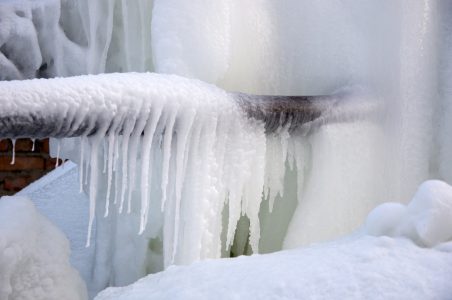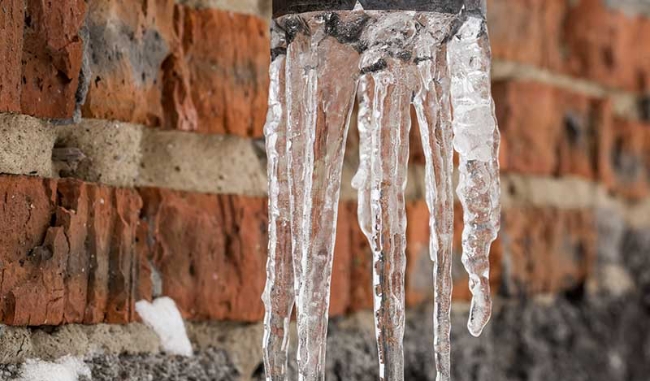This post further down relating to How to prepare your home plumbing for winter weather is seriously intriguing. You should take a look.

Cold weather can wreak havoc on your plumbing, particularly by freezing pipelines. Right here's how to stop it from occurring and what to do if it does.
Introduction
As temperature levels decline, the risk of icy pipes increases, possibly bring about costly repair services and water damage. Understanding how to stop frozen pipelines is essential for homeowners in cold climates.
Prevention Tips
Shielding vulnerable pipelines
Wrap pipes in insulation sleeves or make use of heat tape to shield them from freezing temperatures. Concentrate on pipelines in unheated or outside areas of the home.
Home heating strategies
Maintain interior rooms appropriately heated up, specifically areas with pipes. Open cabinet doors to allow cozy air to flow around pipes under sinks.
Just how to identify icy pipes
Look for reduced water circulation from taps, unusual odors or sounds from pipes, and noticeable frost on subjected pipes.
Long-Term Solutions
Architectural modifications
Consider rerouting pipelines far from exterior walls or unheated locations. Add extra insulation to attics, cellars, and crawl spaces.
Upgrading insulation
Purchase top notch insulation for pipes, attic rooms, and wall surfaces. Correct insulation aids keep constant temperature levels and decreases the danger of frozen pipelines.
Safeguarding Exterior Pipes
Yard hose pipes and outdoor taps
Disconnect and drain pipes yard hoses before wintertime. Install frost-proof spigots or cover outdoor faucets with insulated caps.
Understanding Icy Pipelines
What causes pipelines to ice up?
Pipelines ice up when revealed to temperature levels listed below 32 ° F (0 ° C) for prolonged periods. As water inside the pipes freezes, it broadens, taxing the pipeline walls and possibly causing them to rupture.
Dangers and damages
Icy pipelines can result in water supply disturbances, residential or commercial property damages, and pricey repairs. Burst pipelines can flood homes and trigger considerable architectural damages.
Indications of Frozen Water Lines
Recognizing frozen pipes early can avoid them from bursting.
What to Do If Your Pipelines Freeze
Immediate actions to take
If you presume icy pipes, keep faucets open up to soothe pressure as the ice thaws. Utilize a hairdryer or towels soaked in warm water to thaw pipes gradually.
Conclusion
Avoiding frozen pipes needs proactive actions and quick reactions. By understanding the reasons, signs, and safety nets, property owners can secure their plumbing throughout cold weather.
Helpful Tips to Prevent Frozen Pipes this Winter
UNDERSTANDING THE BASICS: WHY PIPES FREEZE AND WHY IT’S A PROBLEM
Water freezing inside pipes is common during the winter months, but understanding why pipes freeze, and the potential problems it can cause is crucial in preventing such incidents. This section will delve into the basics of why pipes freeze and the associated problems that may arise.
THE SCIENCE BEHIND FROZEN PIPES
When water reaches freezing temperatures, it undergoes a physical transformation and solidifies into ice. This expansion of water as it freezes is the primary reason pipes can burst. As the water inside the pipe freezes, it expands, creating immense pressure on the walls. If the pressure becomes too great, the pipe can crack or rupture, leading to leaks and water damage.
FACTORS THAT CONTRIBUTE TO PIPE FREEZING
Low Temperatures: Extremely cold weather, especially below freezing, increases the risk of pipes freezing. Uninsulated or Poorly Insulated Pipes: Pipes located in unheated areas, such as basements, crawl spaces, or attics, are more prone to freezing. Insufficient insulation or lack of insulation altogether exacerbates the problem. Exterior Wall Exposure: Pipes running along exterior walls are susceptible to freezing as they encounter colder temperatures outside. Lack of Heating or Temperature Regulation: Inadequate heating or inconsistent temperature control in your home can contribute to frozen pipes. PROBLEMS CAUSED BY FROZEN PIPES
- Pipe Bursting: As mentioned earlier, the expansion of water as it freezes can cause pipes to burst, resulting in significant water damage.
- Water Damage: When pipes burst, it can lead to flooding and water damage to your property, including walls, ceilings, flooring, and personal belongings.
- Structural Damage: Prolonged exposure to water from burst pipes can compromise the structural integrity of your home, leading to costly repairs.
- Mold and Mildew Growth: Excess moisture from water damage can create a favorable environment for mold and mildew growth, posing health risks to occupants.
- Disrupted Water Supply: Frozen pipes can also result in a complete or partial loss of water supply until the issue is resolved.
WHY CERTAIN PIPES ARE MORE PRONE TO FREEZING
- Location: Pipes located in unheated or poorly insulated areas, such as basements, crawl spaces, attics, or exterior walls, are at higher risk of freezing.
- Exterior Pipes: Outdoor pipes, such as those used for irrigation or exposed plumbing, are particularly vulnerable to freezing as they are directly exposed to the elements.
- Supply Lines: Pipes that carry water from the main water supply into your home, including the main water line, are critical to protect as freezing in these lines can affect your entire plumbing system.
- Underground Pipes: Pipes buried underground, such as those connected to sprinkler systems or outdoor faucets, can be susceptible to freezing if not properly insulated.
https://busybusy.com/blog/helpful-tips-to-prevent-frozen-pipes-this-winter/

I stumbled upon that article about Prevent Frozen Pipes when doing a lookup on the search engines. Sharing is good. You never know, you may just be doing someone a favor. We thank you for your readership.
Further Details